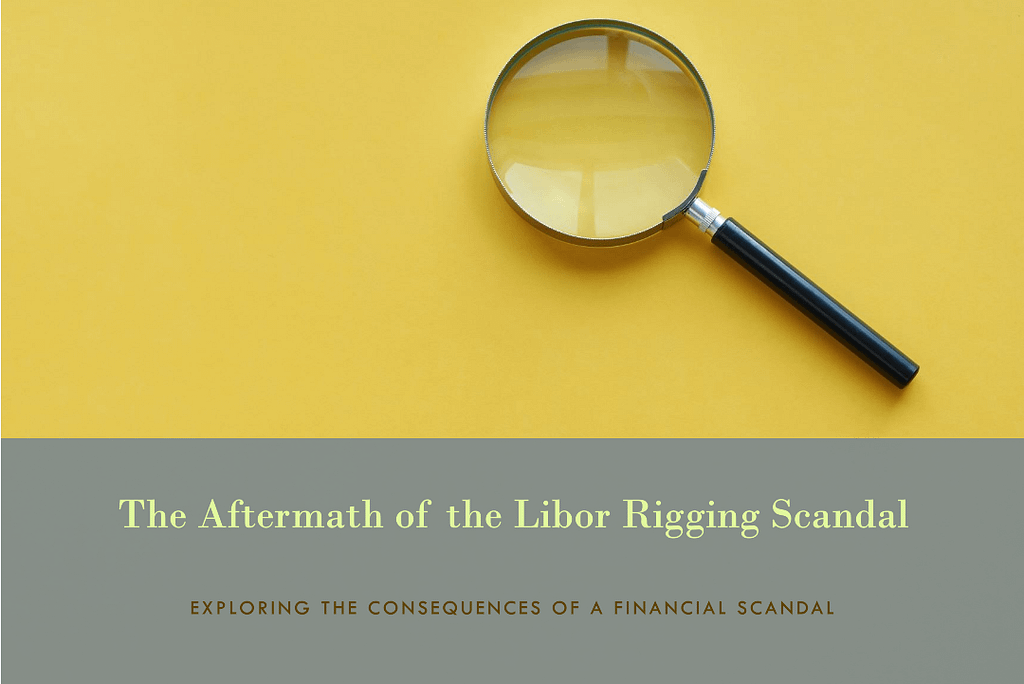Starting a business in Canada can often feel like stepping into unfamiliar territory—especially if you’re accustomed to American business terms like LLC or limited liability company. If you’re a U.S. entrepreneur or investor, questions like “Can I form an LLC in Canada?” or “What’s the equivalent of an LLC in Ontario?” are not only common but essential to get right. Canadian business structures differ significantly from those in the United States, and assuming they operate the same way can lead to costly errors. That’s why gaining a clear understanding of the local legal framework before you incorporate is not just helpful—it’s vital to your business’s success.
Canada offers several types of business structures, but none of them is a direct match for the U.S. LLC model. Whether you’re starting a brand-new venture or expanding an existing business into the Canadian market, you’ll need to choose from options like sole proprietorships, partnerships, or the most commonly preferred structure—a Canadian corporation. This choice will influence your tax obligations, liability exposure, reporting requirements, and overall business operations. Going through business expansion alone becomes difficult after entering unfamiliar legal and financial territory, which grows harder with international factors.
That’s where Pacific Legal steps in. We’re not just legal advisors—we’re strategic partners invested in your long-term growth. Our team specializes in helping startups, international firms, and Canadian entrepreneurs choose the right structure, comply with regulatory frameworks, and create customized legal documents like shareholder agreements, articles of incorporation, and more. Whether you’re forming a new business entity, looking to protect your personal assets, or expanding into new markets, Pacific Legal ensures your foundation is rock-solid from day one. Let’s dive into the details of what you need to know before incorporating in Canada—so you can focus on building your business, while we handle the legal side.
Also Read: What is a Sole Proprietorship and How to Start One in Ontario?
What is an LLC? Why is It So Popular in the U.S.?
In the United States, a limited liability company (LLC) is a highly popular and flexible business structure that combines the best features of two traditional models: corporations and partnerships. From the corporation, it inherits limited liability protection—which means that the business owner (or owners, known as “members”) is generally not personally liable for the debts or legal obligations of the business. From partnerships, it adopts the concept of pass-through taxation, allowing the company’s profits and losses to pass directly to the members’ personal tax returns, thereby avoiding the double taxation typically faced by corporations. This hybrid nature makes the LLC especially attractive to small businesses and startups across various industries.
The LLC operating agreement stands as an indispensable document which serves as the internal governance system of the company. An LLC operating agreement determines operational procedures while handling decision-making processes, in addition to membership admissions and profit divisions. The existence of an operating agreement remains important even though certain states allow the option of being without one. Furthermore, the ownership of an LLC is incredibly flexible. A “member” can be a single individual (single-member LLC), a group of people, or even another LLC, corporation, or trust. This flexibility allows businesses to tailor their structure to meet strategic goals and succession plans.
Illustration: Sarah and Alex operate PixelForge Graphic Design Company in California as partners through their LLC to prevent personal accountability from business risks. The company chooses LLC status to prevent personal claims from affecting its owners in case of legal or debt issues. By drafting a detailed LLC operating agreement, they define how decisions will be made (unanimously or by majority vote), how profits and losses will be shared (50/50), and what happens if one of them decides to exit the business. Because PixelForge is taxed as a partnership, the company’s income passes through to Sarah and Alex individually, helping them avoid double taxation. Plus, if the business is ever sued, Sarah and Alex’s personal assets—like their homes or savings—are shielded. This kind of setup makes the LLC an ideal vehicle for small business owners looking to grow while minimizing risk.
What is a Canadian Corporation?
Canada does not have an exact LLC equivalent. The closest comparison is a Canadian corporation, which is a separate business entity under federal or provincial laws.
A Canadian corporation offers limited liability protection, meaning the owners (shareholders) are not personally liable for the company’s debts. This structure is ideal for those looking to scale their business in Canada, attract investors, or expand internationally.
Incorporation in Canada involves filing articles of incorporation, issuing shares, maintaining a minute book, and filing an annual report. Unlike the articles of organization used to form an LLC in the U.S., Canadian corporations require compliance with the Canada Business Corporations Act or respective provincial acts.
Common Business Structures in Ontario
If you’re thinking of doing business in Ontario, choosing the right business structure is one of the most important decisions you’ll make. Each structure comes with its own set of legal, tax, and liability implications—so understanding your options is crucial before you begin.
- Sole Proprietorship: This is the easiest and most inexpensive business structure to set up. However, it does not offer limited liability, meaning your personal assets are at risk if the business incurs debts or legal issues.
- Partnership: In a general partnership, two or more individuals share ownership and management duties. While it allows for combined resources and shared responsibilities, it also means shared risks and liabilities.
- Corporation: A Canadian corporation stands as an autonomous legal structure which offers substantial protection against legal liabilities for its shareholders. A Canadian corporation operates as a preferred business choice for experienced entrepreneurs, along with capital fundraising and business growth objectives.
- Cooperative: A co-op is owned and democratically controlled by its members, who use its services or products. It’s ideal for groups with a common goal or interest, but requires a strong collaborative foundation and formal governance.
Many American entrepreneurs searching for an LLC in Ontario are actually looking to create a Canadian corporation, as it provides the closest functional equivalent to an LLC that Canada can offer. At Pacific Legal, we help you make this transition seamlessly, ensuring your business complies with Ontario laws while optimizing for protection and tax efficiency.
Why Choose Incorporation Over Other Structures?
Canada business incorporation has several benefits over sole proprietorships or partnership structures. Although unincorporated forms may be simpler and less expensive to establish, they do not provide the essential protections and long-term advantages enjoyed with incorporation. Incorporation keeps your personal assets distinct from business liabilities, provides tax planning freedom, enhances your business credibility among clients and investors, and offers perpetual business existence regardless of ownership changes.
In addition, incorporation provides you with access to the small business deduction and other tax benefits that unincorporated businesses do not enjoy. Should you wish to grow, bring in investors, or commit to contracts between jurisdictions, incorporation is virtually always the more resilient and forward-looking option.
Pacific Legal assists you in balancing these advantages against the objectives of your business so that you can make an informed, assured choice.
Characteristics of a Canadian Corporation
The Canadian corporation stands as a powerful business structure which provides domestic and international business owners with multiple advantages to conduct their operations. The Canadian entity delivers comparable protection to the U.S. LLC with additional tax benefits, which make it an excellent choice for conducting business in Canada.
- Separate Legal Identity: A Canadian corporation is recognized as its own legal person under the law. This means it can own property, enter into contracts, sue or be sued, and carry on business independently of its shareholders.
- Limited Liability: One of the most important features of incorporation is limited liability. Shareholders are generally not personally liable for the debts or obligations of the corporation beyond their investment in shares.
- Perpetual Existence: Unlike a sole proprietorship or general partnership, a corporation does not dissolve if an owner departs or passes away. It continues to exist until it is legally dissolved, making it a more stable and long-term business entity.
- Tax Planning Opportunities: Canadian corporations gain tax benefits through the small business deduction and multiple deferred tax strategies, together with preferential tax treatment. The preferential tax treatment enables business owners with sharp minds to reinvest their earnings while establishing better growth potential.
- Formal Structure: A corporation operates under a formal organizational framework that demands director selections and bylaws establishment while enforcing yearly reporting(annual report) duties, including annual reporting and minute book maintenance.
While the LLC is a business structure highly favoured in the United States, a well-planned Canadian corporation can offer similar—if not superior—benefits when operating within Canada’s regulatory and tax framework. At Pacific Legal, we help you take full advantage of these features, ensuring your limited liability corporation is built on a strong legal foundation.
LLC vs Canadian Corporation: Key Differences
| Feature | U.S. LLC | Canadian Corporation |
| Legal Recognition in Canada | Not recognized as a formal business structure in Canada. You cannot directly form an LLC in Canada. | Fully recognized under federal or provincial laws like the Ontario Business Corporations Act (OBCA) or the Canada Business Corporations Act (CBCA). |
| Structure & Formation | Formed by filing Articles of Organization with the relevant U.S. state. Managed by members (owners) or managers. Governed by an LLC operating agreement. | Formed by filing Articles of Incorporation. Managed by directors and officers. Governed by bylaws and sometimes a shareholder agreement. |
| Ownership | Owned by one or more members (can be individuals, corporations, LLCs, or trusts). Offers flexible ownership and profit-sharing arrangements. | Owned by shareholders who hold company shares. Ownership can be transferred through the sale or issuance of shares. |
| Taxation | Offers pass-through taxation (default): profits and losses pass to members, avoiding double taxation. Can also elect corporate taxation. | Taxed as a separate legal entity. Profits are taxed at the corporate level and again when distributed to shareholders as dividends (double taxation). |
| Liability Protection | Strong limited liability protection for members—personal assets are generally shielded from business liabilities. | Shareholders enjoy limited liability, meaning they are not personally liable for the corporation’s debts beyond their share investment. |
| Flexibility | Highly flexible: fewer formalities, less regulation, customizable governance. | More formal structure: annual meetings, annual reports, board resolutions, and other compliance obligations. |
| LLC Equivalent in Canada | No true equivalent—the closest alternative is a private Canadian corporation with a single shareholder/director, but this does not provide the same pass-through taxation. | Fully integrated in the Canadian legal system. Suitable for both small businesses and large enterprises. |
| Ideal For | Small to medium U.S.-based businesses, freelancers, real estate investors, and family-owned companies. | Entrepreneurs, investors, startups, and foreign businesses are expanding into Canada. Offers credibility, investment opportunities, and tax planning tools. |
| Registration Location | Registered in a specific U.S. state; rules vary by state (e.g., Delaware, Nevada). | Can be registered federally or provincially (e.g., a Corporation in Ontario under OBCA). Provincial incorporation is usually simpler and more cost-effective. |
| Compliance & Reporting | Typically, a lower compliance burden. No requirement for annual shareholder meetings or detailed corporate records (varies by state). | Must file annual returns, keep corporate records (e.g., minute books), and hold annual meetings. Regulatory obligations are stricter. |
Key Insight: There is no direct limited liability corporation or LLC registration available under Canadian law. Instead, entrepreneurs must register a corporation under federal or provincial laws.
Can You Set Up a U.S. LLC in Canada?
Technically, no—you cannot directly start an LLC in Canada. However, a U.S.-based limited liability company can register as an extra-provincial corporation in Canada if it wants to operate here.
Here’s how it works:
- The LLC registers federally or provincially as a foreign entity.
- It must maintain a registered office in Canada.
The company may face double taxation—once in the U.S., once in Canada—if not structured carefully.
In H.M.B. Holdings Ltd. v. Antigua and Barbuda, 2021 SCC 44 (CanLII), the Supreme Court of Canada addressed issues related to the recognition and enforcement of foreign judgments in Canada. The Court emphasized the need for foreign entities to comply with Canadian legal standards and procedures, particularly when engaging in business activities within the country. This case highlights the importance of proper registration and adherence to Canadian laws for foreign entities operating in Canada.
How to Start an LLC in Canada (The Right Way)
If you’re searching for how to start an LLC in Canada, you’re likely looking to:
- Form a Canadian corporation with LLC-style benefits, or
- Expand your U.S. LLC into Canada legally.
Here’s the step-by-step route:
1. Choose Your Jurisdiction
Decide between:
- Federal Incorporation: Operates across all provinces.
- Provincial Incorporation (e.g., Ontario): Operates in a single province, with lower cost and complexity.
Also Read: Federal vs. Provincial Incorporation in Ontario: A Comprehensive Guide
2. Name Your Business
Conduct a NUANS name search to ensure your chosen name is unique.
3. File Articles of Incorporation
This document outlines the business structure, share classes, and other essential details.
4. Create Internal Governance Documents
Like a U.S. LLC operating agreement, Canadian corporations need bylaws and shareholder agreements.
5. Register for Taxes
Obtain a business number, GST/HST number, and other applicable tax accounts.
6. Comply with Reporting Requirements
File your annual report, maintain corporate records, and update your minute book regularly.
Why You Should Work With a Business Lawyer
Choosing the right business structure can make or break your business. A mistake during incorporation can lead to:
- Legal disputes between partners
- Tax penalties
- Loss of personal asset protection
Pacific Legal offers deep expertise in corporate law, cross-border structuring, and regulatory compliance. Whether you’re a startup looking to incorporate or a U.S. business owner expanding to Canada, we help you navigate:
- LLC registration
- Cross-border tax implications
- Shareholder agreements
- Director liability issues
In Sharp v. Autorité des marchés financiers, 2023 SCC 29 (CanLII), the Supreme Court of Canada addressed issues related to corporate governance and regulatory compliance. The decision emphasizes the necessity for businesses to maintain proper documentation and adhere to regulatory standards to avoid legal complications.
Why Pacific Legal is the Best Partner for Your Business?
At Pacific Legal, we’ve helped hundreds of clients—local and international—launch and grow successful businesses in Ontario and across Canada. Here’s why clients trust us:
- Personalized incorporation strategies tailored to your goals
- Expertise in U.S.-Canada business structuring
- Fast, transparent, and affordable legal service
- 5-star rated by startups, corporations, and investors
- We speak your language—law, business, and success
Ready to Incorporate in Canada? We’ll Help You Do It Right.
Don’t gamble with your business future by navigating the incorporation process alone. Whether you’re a U.S. LLC owner or a Canadian entrepreneur just getting started, let Pacific Legal be your strategic legally.
Schedule a free consultation and learn more about incorporating your limited liability company or Canadian corporation today.
Your business deserves the right structure, right from the start. Let Pacific Legal guide you every step of the way.
Frequently Asked Questions (FAQs)
1. Does Canada have LLCs?
No, Canada does not recognize the U.S. LLC (Limited Liability Company) as a legal business structure. Instead, Canada offers corporations, which provide similar benefits like limited liability and operational flexibility under a formal framework.
2. What is the Canadian Equivalent of an LLC?
The nearest Canadian counterpart to an American LLC is a Canadian private corporation. As much as it does not provide pass-through taxation by default, it does provide limited liability protection, enduring existence, and tax planning possibilities under Canadian law.
3. Can a U.S. LLC do business in Canada?
Yes, an LLC in the U.S. may do business in Canada but not as an LLC in Canada. It will have to register as an extra-provincial corporation, have a registered Canadian office, and adhere to local business and tax regulations. Misregistration can cause legal or tax issues.
4. Can a Canadian own a U.S. LLC?
Yes. Canadians can invest in or own a U.S. LLC. But doing that needs to be properly tax planned since income produced might be taxable in both Canada and the U.S., based on the structure of the LLC and how it is treated for tax purposes.
5. What are the Tax differences between a U.S. LLC and a Canadian Corporation?
An American LLC will generally be subject to pass-through taxation, with profits and losses appearing on personal tax returns. Canadian corporations, however, are taxed as legal entities. This implies corporate income is taxed, and dividends paid to owners are taxed again though with credits reducing the double taxation.
6. Can I convert my U.S. LLC to a Canadian Corporation?
You cannot simply “convert” a U.S. LLC into a Canadian corporation. You can, however, create a new Canadian corporation and transfer operations or assets. Pacific Legal assists clients with proper cross-border structuring, tax implications, and legal compliance to provide a seamless and compliant transition.







